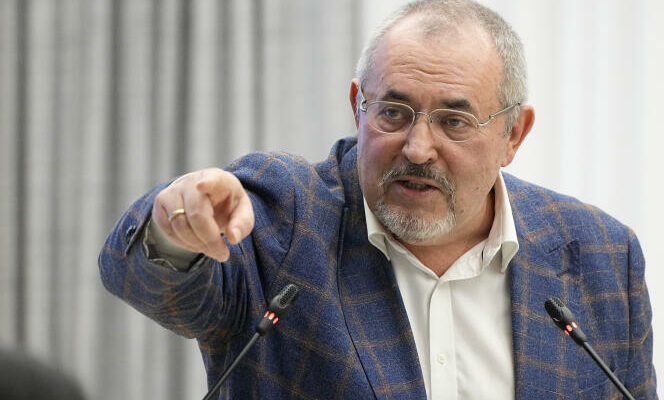The suspense was limited, the decision in line with expectations. Anxious to keep under strict control an electoral process which nevertheless appears to have little risk, the Russian authorities have blocked the path to the only truly independent candidate for the presidential election which is to be held from March 15 to 17, and above all the only one to display a – more or less – clear anti-war position.
The central electoral commission decided this on Thursday February 8, rejecting the candidacy for this election of Boris Nadejdine, 60 years old. As in every local or national election for around ten years (with the exception of the 2018 presidential election, when the courts simply declared Alexeï Navalny ineligible), the reason given is that of errors in the candidacy file, and more specifically in the signatures of citizens required to register a signature.
Of the approximately 100,000 initials that Mr. Nadejdine had to provide, 9,147 were deemed inadmissible, more than the accepted margin of error of 5%. “You have good political prospects. Continue, we will be delighted to welcome you »the president of the commission, Elena Pamfilova, told him, a few words apart from the ritual phrase she reserves for undesirable and therefore unsuccessful candidates – ex-journalist Ekaterina Dountsova being the latest.
As early as February 2, the day Boris Nadejdine submitted his file, members of the electoral commission had made it clear that the decision had been made, by citing “errors that cause astonishment”and even “dead souls”, or false signatories. Eleven signatures of deceased citizens have been identified, the commission said on Thursday.
Saboteurs
In response, Mr. Nadezhdine sent photographs of the endless queues that were observed throughout the month of January in Russian cities, made up of citizens eager to add their signature. This collection of signatures has in fact become the political event of the winter, the only one capable of enlivening a perfectly dull electoral campaign, in which the candidates compete with each other with compliments to Vladimir Putin and pretend to tear each other up over secondary subjects.
The commission justified its decision by pointing out, essentially, typos, for example in the writing of an address, or irregularities committed by the person collecting the initials. Documents made public by the candidate’s team show that at least part of the typos observed by the authorities are the work of the electoral commission itself.
You have 45% of this article left to read. The rest is reserved for subscribers.
